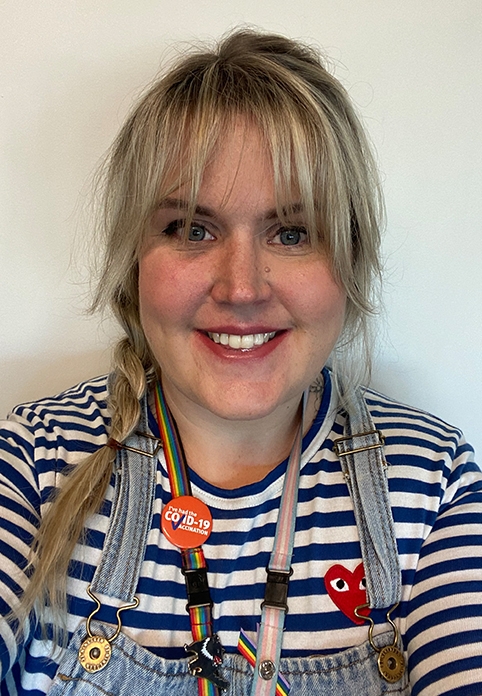This site may not work properly using older versions of Edge and Internet Explorer. You should upgrade your browser to the latest Chrome, Firefox, Edge, Safari, or any other modern browser of your choice. Click here for more information.
Your Stories
This is where we tell your stories, cover topical issues and promote meaningful initiatives.
Timely termination access in remote Australia
Pregnant people in rural and remote areas seeking termination services commonly experience access delays and difficulties. Whilst several factors influence this, Laura Berry, Mental Health and Wellbeing Educator, CRANAplus, and Sexual and Reproductive Health Nurse, believes that a key driver to improvement lies with timely and appropriate responses from primary healthcare clinicians.
When I moved from the UK to Australia in 2013, working as a nurse in remote Australia was a dream job that soon became my reality. Over the last ten years, I have practised in various communities around Cape York and the East and West Kimberley. Five years ago, I found my calling when I transitioned into a sexual and reproductive health role. I felt as though this role was all I was ever supposed to do and working so closely with the community has been a privilege. I realised that remote work is not for the faint-hearted and I quickly had my eyes opened to the unique challenges that pregnant people face when accessing reproductive healthcare, specifically Medical Termination of Pregnancy (MToP).
Understanding Medical Termination of Pregnancy (MToP)
In Australia, the MS 2‑Step regimen is used for early MToP. This involves two medications: mifepristone (Step 1), which halts the progression of pregnancy, and misoprostol (Step 2), which induces uterine contractions and cervical dilation to expel the pregnancy tissue (MS Health, 2023). The MS 2‑Step is approved for use up to 63 days gestation, making early access to healthcare services crucial.
Due to these regulations, MToP is extremely time-sensitive, and missing the window leaves clients with no alternative but to continue with the pregnancy or opt for surgical termination of pregnancy (SToP). In remote communities SToP requires long-distance travel, meaning clients are required to spend time away from their friends, family, and community. I personally have witnessed clients’ trauma associated with interstate hospital transfers and know that this acts as a significant deterrent to seeking care. Some pregnant individuals I’ve worked with have even become lost to follow-up when travel for a surgical termination was required.
Barriers to accessing termination services
Research and clinical practice show that pregnant people in rural and remote Australia face disproportionate challenges compared to their counterparts in metropolitan areas. The barriers to accessing reproductive healthcare in these regions are multifaceted and contribute to poorer health outcomes. In some cases, the lack of access to termination services means that clients have no other choice but to continue with unwanted pregnancies, which can have a profound and lasting impact on their mental health.
Chronic healthcare staff shortages result in extended wait times for clients. Often, they have family at home which they are required to care for, or they need to pick up their children from school meaning they have minimal time to wait at the health service to be seen.
I have also worked with clients where intimate partner violence and reproductive coercion are factors they need to navigate and negotiate when seeking health care. Understanding that this is a real part of people’s lives offers us the chance as clinicians to work using an intersectional lens and understand that access to care is not always easy for clients and that we need to be flexible, empathetic and trauma-informed in our practice.
The crucial role of primary healthcare
Primary healthcare is essential in providing timely and appropriate care to improve health outcomes for individuals seeking termination services. However, chronic staff shortages and a lack of clinician confidence in providing information often result in delays and difficulties accessing necessary care.
While workforce shortages may be beyond our immediate control, understanding our clients’ unique needs through an intersectional lens is within our power.
By taking the time to understand the social, cultural, and physical factors that hamper access to care, we can work towards delivering compassionate, ethical care that meets the standards our clients deserve.
We as health workers can play a pivotal role in advocating for improved access to termination services. We work to forge close relationships with the community to build trust and support in addressing client-specific needs and barriers and solutions to these.
Moving forward
My journey as a sexual and reproductive health nurse has led me to undertake a Master of Sexual and Reproductive Health. Having now completed this, I have transitioned into training to become a nurse practitioner. I hope to contribute to improving reproductive health service delivery for individuals who live in rural and remote Australia and want to access MToP. Whilst increasing the number of clinicians who can deliver this care safely and competently is just one piece of the puzzle, it is a start.
For those of you who just want to learn more about ways to upskill in this area, there are many organisations dedicated to improving access. Children by Choice is an independent, not-for-profit, pro-choice organisation that offers support to clients (QLD only) and provides low-cost training for health professionals on reproductive coercion, abortion counselling and reproductive rights.
— Laura Berry, Mental Health & Wellbeing Educator CRANAplus
For additional reading on sexual health, see ‘Your contraception questions answered’ or ‘Sexual Health in Regional & Remote Populations’.

